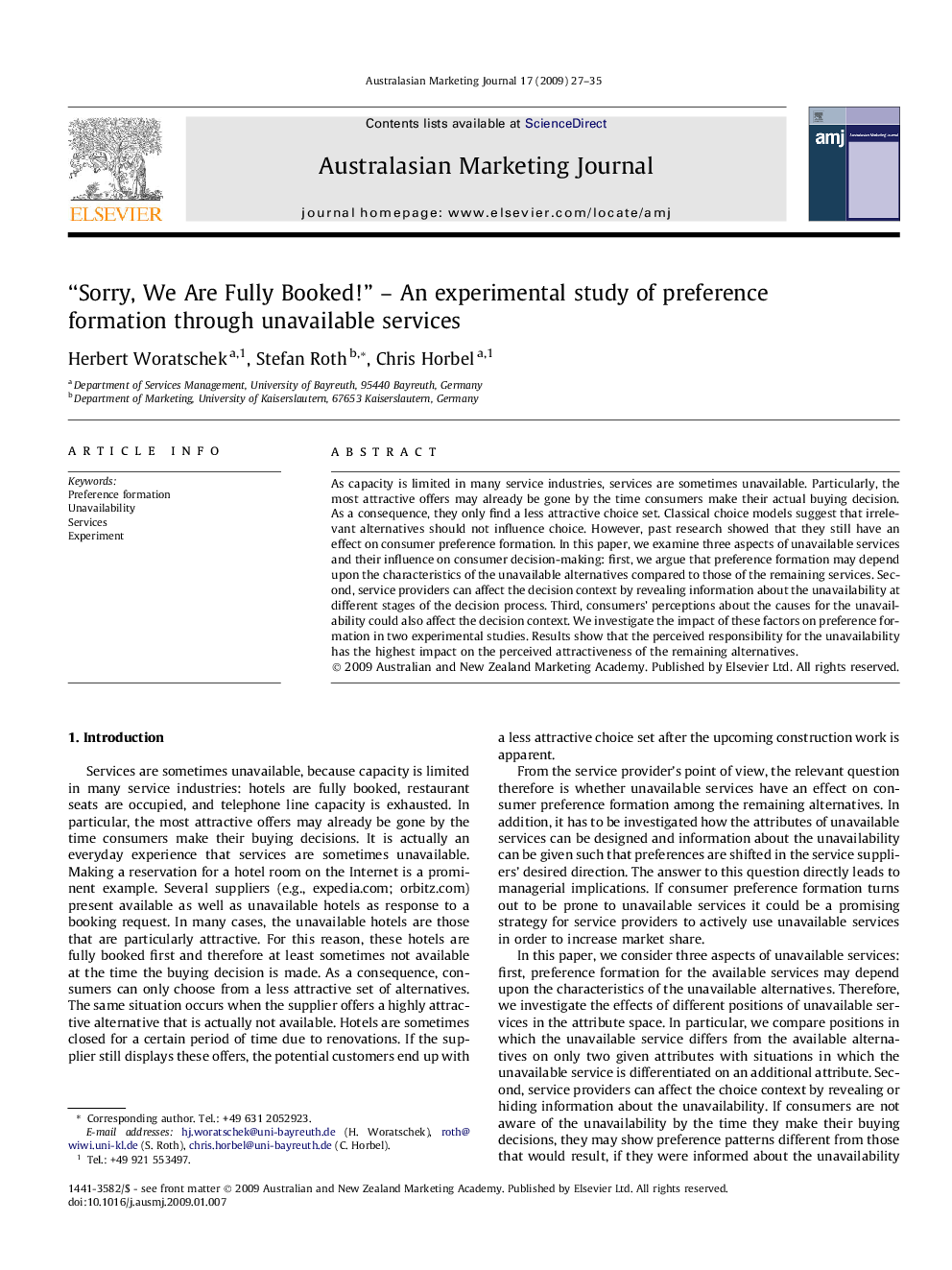| Article ID | Journal | Published Year | Pages | File Type |
|---|---|---|---|---|
| 1027174 | Australasian Marketing Journal (AMJ) | 2009 | 9 Pages |
As capacity is limited in many service industries, services are sometimes unavailable. Particularly, the most attractive offers may already be gone by the time consumers make their actual buying decision. As a consequence, they only find a less attractive choice set. Classical choice models suggest that irrelevant alternatives should not influence choice. However, past research showed that they still have an effect on consumer preference formation. In this paper, we examine three aspects of unavailable services and their influence on consumer decision-making: first, we argue that preference formation may depend upon the characteristics of the unavailable alternatives compared to those of the remaining services. Second, service providers can affect the decision context by revealing information about the unavailability at different stages of the decision process. Third, consumers’ perceptions about the causes for the unavailability could also affect the decision context. We investigate the impact of these factors on preference formation in two experimental studies. Results show that the perceived responsibility for the unavailability has the highest impact on the perceived attractiveness of the remaining alternatives.
